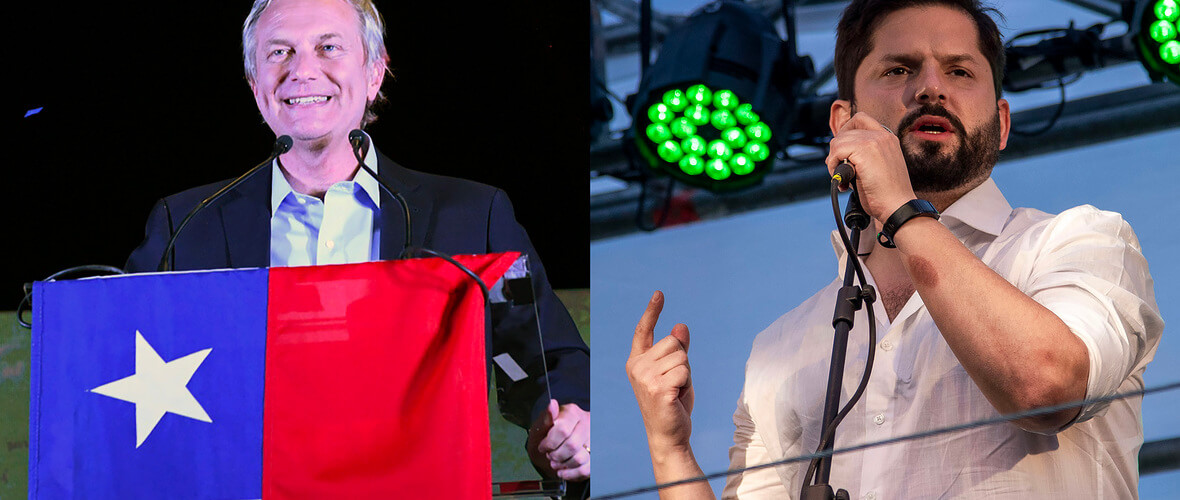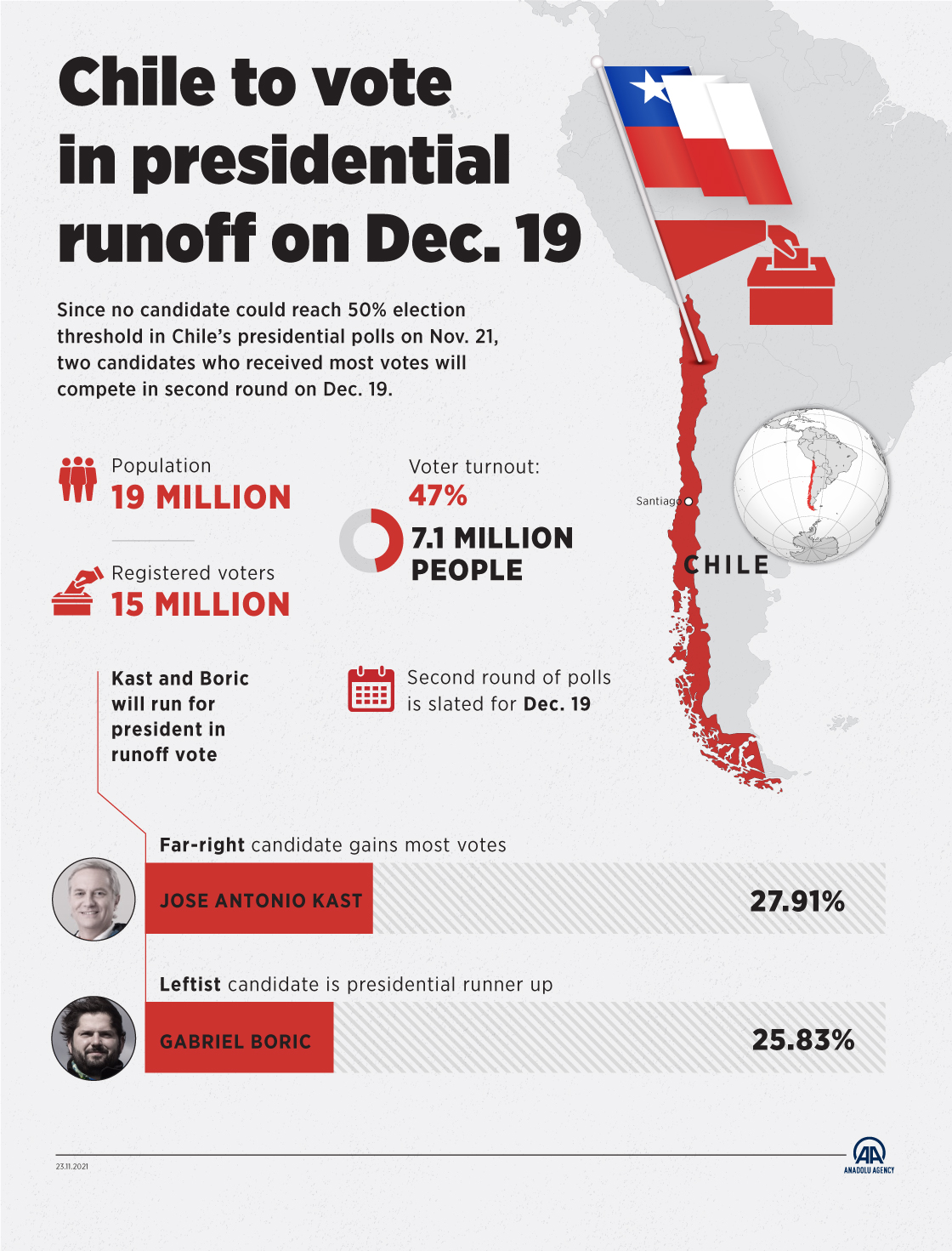Dawn of a New Era
March 21, 2022 | Expert Insights

As one of the more prosperous and stable economies of Latin America, events in Chile have a ripple effect on the rest of the continent. Therefore, the installation of 36-year-old Mr Gabriel Boric of the Social Convergence party (the youngest ever president) has attracted a great deal of international interest. Known for his socialist leanings, Mr Boric won with a convincing 56 per cent majority over his rival in a keenly contested and contentious election held last December.
Background
Over the last two years, Chile, like most of the world, has witnessed instability largely due to a depressed economic outlook. In 2019, mass protests shook the nation, with people demanding better pensions, education and pro-poor economic reforms. Like most other countries in pursuit of free-market norms, Chile, despite its impressive growth rates in the past, had witnessed a growing gap between the rich and the poor, with a mere 1 per cent owning 25 per cent of the national wealth. The situation was further exacerbated by the pandemic.
Under public pressure, the previous President Sebastian Pinera held a referendum on changing the Constitution. The Chileans voted overwhelmingly for a new constitution that is now being drafted.
Mr. Boric was seen by the common man as a messiah, holding out the proverbial promise of rescuing the masses from poverty. He is known for his sharp criticism of the traditional centre-right and centre-left parties, which had taken turns ruling the country since the time of the brutal Pinochet dictatorship.

Analysis
Mr Boric’s primary electoral rival was Mr José Antonio Kast, a far-right candidate, often compared to former U.S. President Donald Trump and Brazil's President Jair Bolsonaro. A staunch defender of the free markets, Mr Kast, advocated a reduction in government spending by cutting down on its social programmes, reducing corporate taxes and keeping out economic migrants from neighbouring countries by building physical barriers.
On the other hand, Boric promised to increase spending in the social sector, reform pensions and augment health care. He also committed to raising taxes on corporations and boosting investments in green energy. Now, he assumes office at a time when the drafting of the new constitution is in its final stages. It is expected to bring out significant legal and political changes in relation to gender equality, indigenous rights, and environmental protection, all issues that Boric had supported quite vocally.
Many are wondering whether this signals the return of the ‘Pink Tide’ in South America. As can be recalled, in the early 2000s, a wave of leftist parties had come to power in Latin America. Speculations are now rife that the pandemic has triggered a second coming.
The original Pink Tide was sustained by high commodity prices. Once the global market for commodities crashed, the leftist governments saw their economic model based on the extraction of natural resources collapsing. However, Pink Tide Version 2.0 is different from its predecessor. Although the new left-wing or the millennial left movement does focus on natural resources, it does not do so to the same extent as before. It has built its support around the historical base of unions and socialists, while using social media platforms like Twitter to expand its reach. In fact, the millennial left focuses more on social justice, environmentalism, human rights etc.
According to the Dutch multinational bank ING, "Latin American politics has already seen a decisive shift to the left in 2021, and it is not over yet." 2022 will be a big year for left politics as the current crop of right-wing leaders appear shaky.
However, the conservatives are fighting back and cannot be entirely written off. For instance, the coming into power of Jair Bolsonaro in Brazil was a massive blow for the progressives. In Uruguay, the conservatives took control of the government after over a decade of Left regimes. Even in Chile, Kast, who ran on a law-and-order platform, was able to win the first round of the elections.
Indeed, this has been one of the most polarising elections in Chile’s recent history. Claudia Heiss, a political science professor at the University of Chile, has remarked, "This has been a campaign dominated by fear, to a degree we have never seen before". This can be extremely detrimental for the larger political climate of this important LATAM nation.
Counterpoint
President Boric’s victory was marked by a slump of 20 per cent in the stock markets as investor confidence was shaken by fears of higher taxes and increased government regulation. However, with the Senate being evenly split between the Left and the Right (Social Convergence has only 37 of the 155 seats in the lower house), it will not be easy going for Mr Boric to push his leftist agenda.
The economy is currently going through an inflationary period due to the fiscal stimulus packages handed out during the pandemic. This will put extra pressure on Boric, who will need to increase spending to fulfil his promises. Most economists also doubt that he will reach the tax revenue targets required to implement his key reforms.
Assessment:
- The Chileans have voted for a president who promises to usher in a new era of politics. However, the public is still very polarised, and it will fall on the president's shoulders to bridge political divisions.
- Going forward, Boric will have his work cut out in tackling economic slowdown, high inflation and a split legislature. More importantly, his administration will also have to oversee the peaceful transition from one constitution to another.








Comments